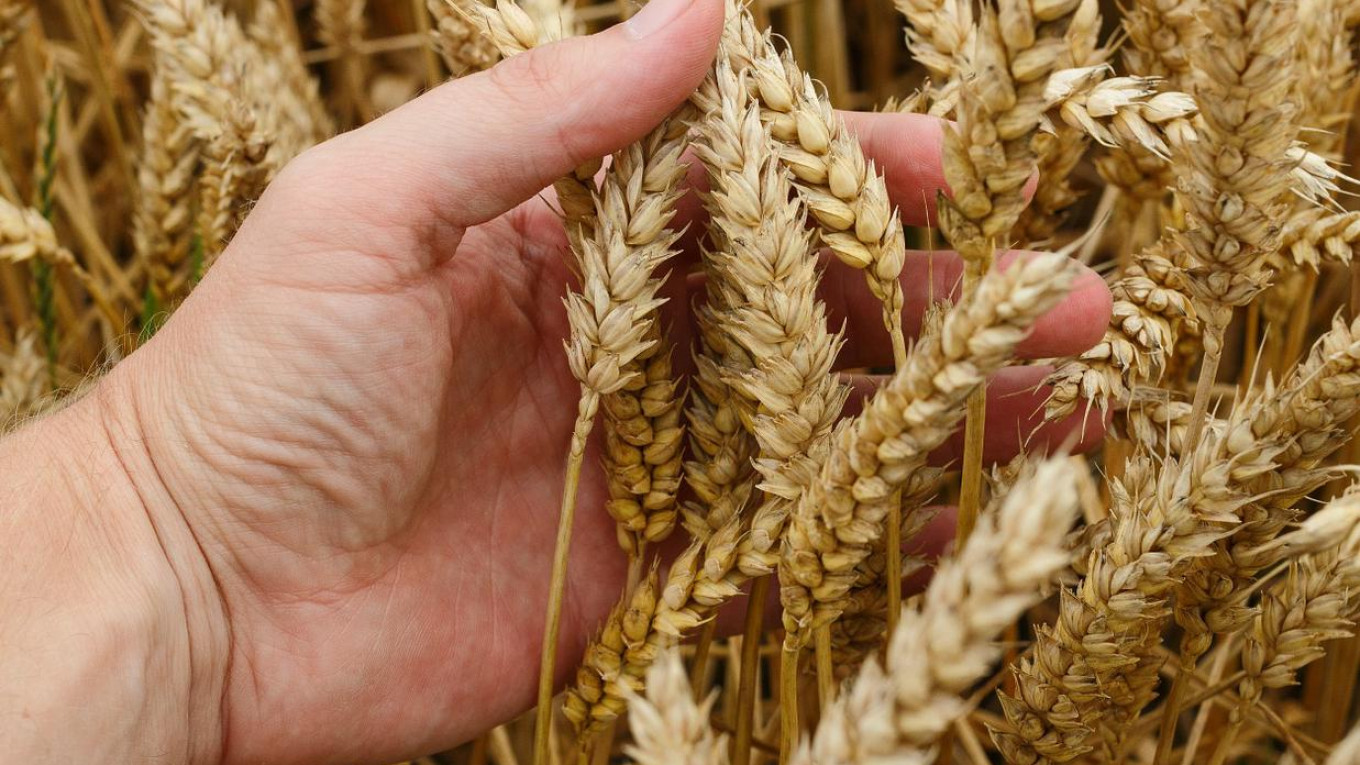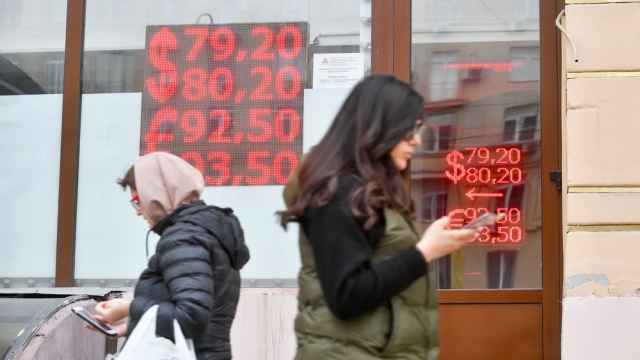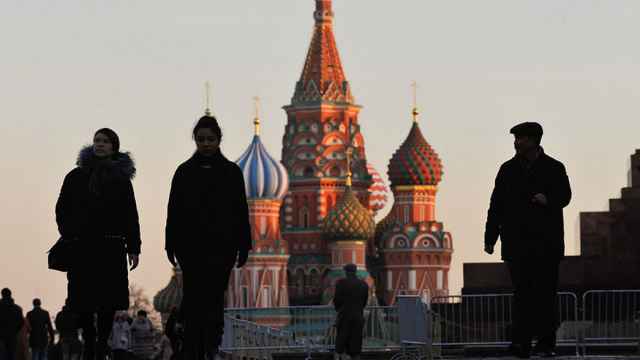(Bloomberg) — Moscow is lobbying Saudi Arabia to open its rapidly growing market to Russian wheat, giving it another destination to offload a record harvest and compete with supplies from the European Union.
Russian wheat has largely been barred from entering the kingdom for the past decade due to strict bug-damage rules, but the two nations have begun talks on starting up trade.
It’s the latest sign of increased collaboration between the two in global commodities markets — the nations are leading a group of 24 nations that have cut oil production to lift energy prices.
Already a superpower in oil and natural gas, Russia sees itself as a growing player in global crop markets. While now the world’s top wheat exporter after taking market share away from key suppliers such as the U.S., markets such as Saudi Arabia and Algeria have remained elusive due to quality rules.
If Russia can access Saudi demand, that could pose significant competition to sales from the EU, the largest shipper to the Middle Eastern nation.
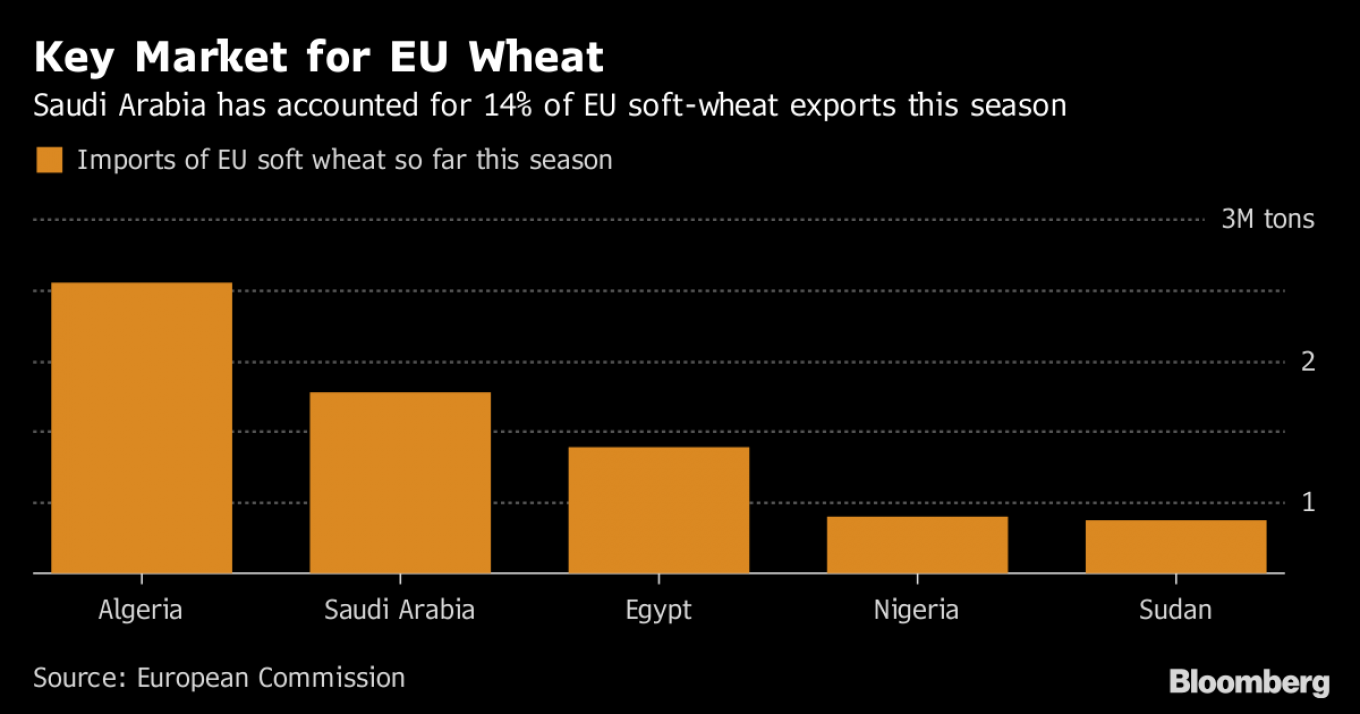
“There is huge potential for Russian wheat to be exported into Saudi Arabia," said Swithun Still, director of grain trader Solaris Commodities SA in Morges, Switzerland.
Grain Talks
Russian Deputy Agriculture Minister Sergei Levin has told Saudi officials that Russian firms want to start shipments. The Saudi agency that runs grain imports has also invited Russian companies to register for the tenders, although it has yet to change the rules.
Germany, Canada, Poland and Lithuania are among the top shippers to Saudi Arabia, according to the nation’s state grains importer. While it only accepts wheat with zero bug damage, Russian cargoes typically contain 0.5 percent of grain damaged by insects, the Institute for Agriculture Market Studies said. That may mean a compromise needs to be reached.
“We need to solve this problem,” said Dmitry Rylko, director general at IKAR in Moscow. “They would have to lower their bar for bug damage. In the foreseeable future, Russia will hardly be able to guarantee no bug damage in exports from the Black Sea.”
Saudi Arabia, the world’s largest importer of barley, ranks in the top 20 for wheat. It initially didn’t impose bug damage limits when starting wheat imports a decade ago, but quickly became wary of Russian cargoes after a now-defunct trading house supplied grain spoiled by weevils, according to traders who participate in Saudi deals.
That prompted strict rules that have largely sidelined Russian wheat.
The current grain talks also come after Brazil decided to open its market to Russian wheat, potentially increasing competition with U.S. grain exports to the South American country.
Saudi Arabia has been increasing overseas wheat purchases after it halted growing the crop in the desert using water from fossil aquifers. Its imports are expected to total 3.8 million metric tons this season, up from just 75,000 tons a decade ago, U.S. Department of Agriculture data show.
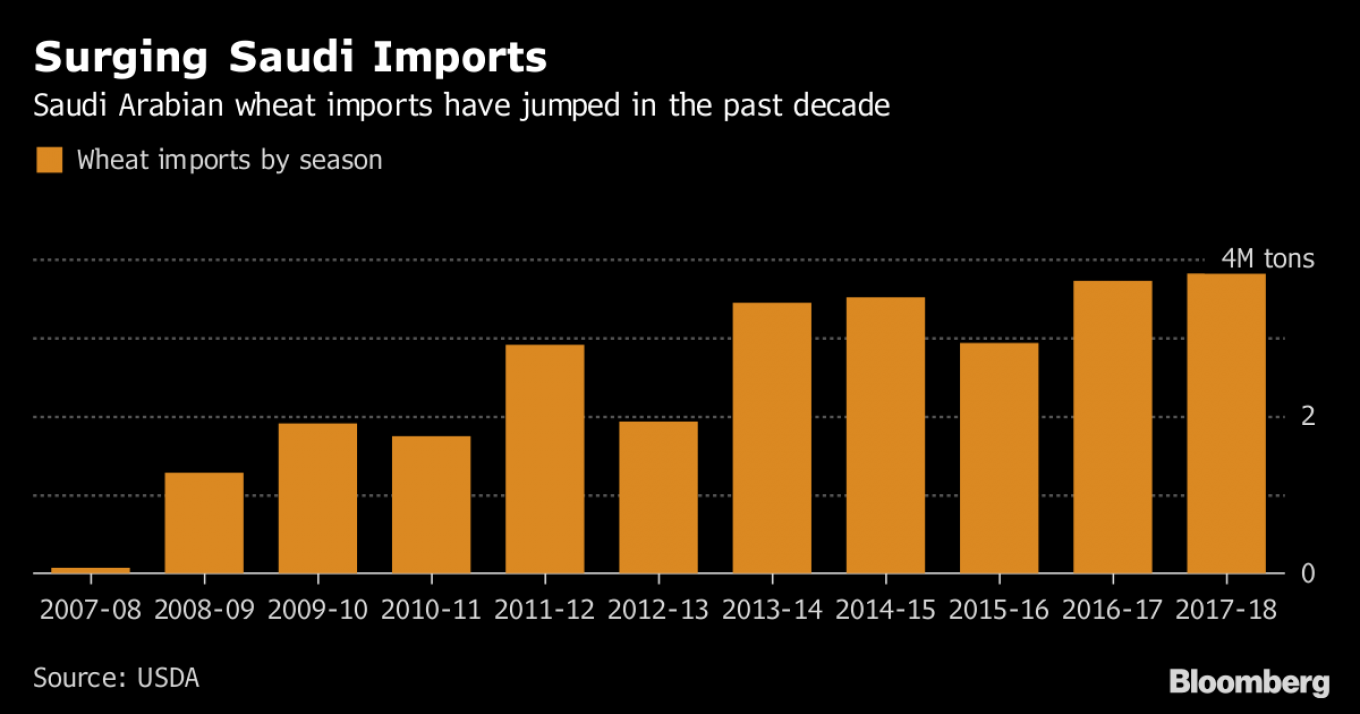
Saudi Grains Organization Governor Ahmad Al Fares, who attended the talks with Russia’s Levin, didn’t immediately respond to a request for comment.
A Message from The Moscow Times:
Dear readers,
We are facing unprecedented challenges. Russia's Prosecutor General's Office has designated The Moscow Times as an "undesirable" organization, criminalizing our work and putting our staff at risk of prosecution. This follows our earlier unjust labeling as a "foreign agent."
These actions are direct attempts to silence independent journalism in Russia. The authorities claim our work "discredits the decisions of the Russian leadership." We see things differently: we strive to provide accurate, unbiased reporting on Russia.
We, the journalists of The Moscow Times, refuse to be silenced. But to continue our work, we need your help.
Your support, no matter how small, makes a world of difference. If you can, please support us monthly starting from just $2. It's quick to set up, and every contribution makes a significant impact.
By supporting The Moscow Times, you're defending open, independent journalism in the face of repression. Thank you for standing with us.
Remind me later.


